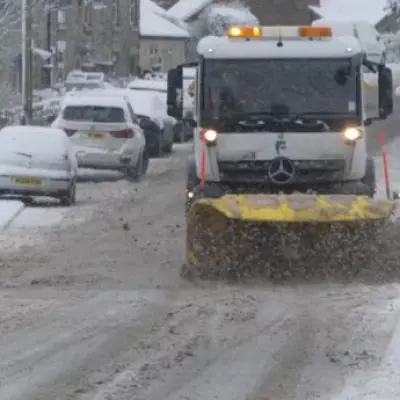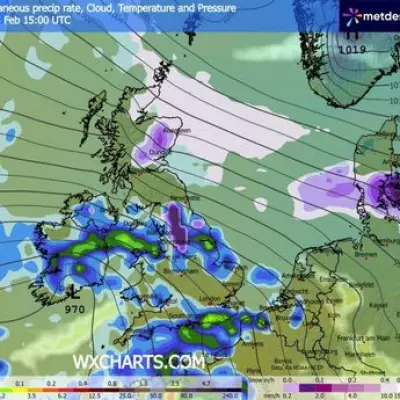
Health authorities across the Midlands and beyond have issued an urgent alert to parents as cases of a potentially dangerous respiratory virus surge among young children. The warning comes as hospitals report increasing admissions of infants and toddlers struggling to breathe.
The Silent Winter Threat: Respiratory Syncytial Virus (RSV)
Respiratory Syncytial Virus, commonly known as RSV, is circulating at concerning levels this winter season. While many adults experience mild cold-like symptoms, this common virus can become life-threatening for babies and young children.
Dr. James Kavanagh, a consultant paediatrician, explains: "RSV is the most common cause of bronchiolitis in infants under one year old. What begins as a simple cold can rapidly develop into serious breathing difficulties requiring hospital treatment."
Critical Symptoms Every Parent Must Recognise
Health experts emphasise that early recognition of worsening symptoms could save a child's life. Parents should seek immediate medical attention if their child displays any of these warning signs:
- Difficulty breathing - rapid breaths, grunting noises, or sucking in chest/stomach
- Persistent high temperature that doesn't respond to medication
- Refusal to feed or significant reduction in fluid intake
- Unusual lethargy or difficulty waking
- Blue tinge around lips or fingertips
Why This Winter Poses Greater Risks
Healthcare professionals note that several factors have created a perfect storm for RSV transmission this season. The combination of colder weather driving people indoors, reduced immunity from pandemic restrictions, and typical winter virus circulation has created challenging conditions for young immune systems.
Sarah Johnson, NHS Matron for Paediatric Services, states: "We're seeing a significant increase in RSV cases compared to previous years. Our paediatric wards are experiencing considerable pressure, and we need parents to be extra vigilant."
Practical Steps to Protect Your Family
While RSV spreads easily through coughs, sneezes, and contaminated surfaces, parents can take proactive measures to reduce infection risks:
- Frequent hand washing with soap and warm water
- Regular surface cleaning of toys and frequently touched areas
- Avoiding close contact with people showing cold symptoms
- Keeping vulnerable infants away from crowded spaces during peak season
- Using tissues when coughing or sneezing and immediate disposal
When to Seek Medical Help
NHS guidance recommends contacting NHS 111 or your GP if your child's symptoms worsen or you notice any breathing difficulties. For severe symptoms like struggling to breathe or blue discolouration, call 999 immediately.
"Trust your instincts as a parent," advises Dr. Kavanagh. "If you're worried about your child's breathing, don't hesitate to seek medical advice. It's always better to be cautious when it comes to respiratory distress in young children."
With RSV season expected to continue through the winter months, health authorities urge parents to remain alert and act quickly if concerning symptoms develop in their children.





